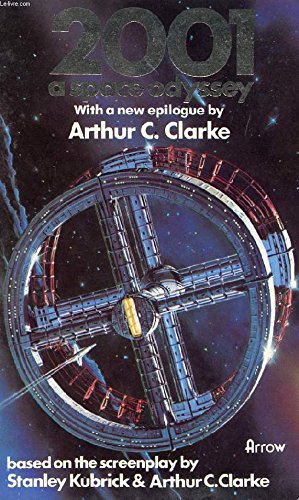
The revelation about Mount Zeus explains how Van der Berg got onto Galaxy and why Rosie tried to hijack it the rulers of the USSA are concerned and the exiled Afrikaners are interested about what might happen to the world diamond market if a vast mountain of diamond were discovered. It is revealed that Van der Berg's hypothesis, now proven true, was that Mount Zeus is one huge diamond, a remnant from the core of the exploded Jupiter. Near Mount Zeus, van der Berg relays the message " LUCY IS HERE" to his uncle Paul. On Europa, Van der Berg and Chris Floyd take the shuttle William Tsung (nicknamed Bill Tee) to study Mount Zeus. Floyd follows a suggestion that he simply try to call Bowman on the radio, and later has a strange dream in which he sees a small monolith floating at the foot of his bed. During the flight, the celebrity passengers discuss the mystery surrounding Dave Bowman and the monoliths, and whether they would be allowed to land on Europa to rescue Galaxy 's crew. After siphoning water from Halley's vents to refuel, Universe heads directly for Europa. Universe abandons its exploration of Halley to rescue Galaxy. Observing the burgeoning aquatic life forms of Europa, the crew pilots Galaxy to an island that they name Haven. Failing in her plan, she commits suicide, and the Galaxy's crew is stranded. As Galaxy nears Europa, Rosie, a stewardess, attempts to hijack the craft, forcing it to crash into Europa's ocean. He communicates his discovery to his uncle Paul Kreuger, and van der Berg is also invited to join the crew of the spacecraft Galaxy for its flyby of Europa. On Ganymede, Rolf van der Berg, a second-generation Afrikaner refugee, studies data on satellite surveys of Mount Zeus and forms an astonishing thesis about its nature. The Universe lands on Halley, and the crew explores its surface and its caves. Now, at the age of 103, Floyd is chosen as one of six "celebrity guests" to travel aboard the privately owned spaceliner Universe for the first-ever human landing on the surface of Halley's Comet as it again nears Earth. His estranged grandson, Chris II, works aboard the spacecraft Galaxy. Heywood Floyd, the protagonist of 2010, has had an accident and become a permanent resident of an orbital space hospital. On Earth, a period of relative peace has evolved between the United States, Soviet Union and China, although a non-violent revolution has taken place in South Africa (now the United States of Southern Africa or USSA) the white population has fled, taking most of the country's wealth with them and leaving the black population to rebuild the economy, which they do in a matter of weeks thanks to the country's diamond mines.ĭr. Humanity is wary of sending spacecraft close to Europa despite its fascinating mysteries, including the appearance of a large mountain, dubbed "Mount Zeus", on its surface. Large-scale interplanetary travel is now commercially viable with muon-catalyzed fusion-powered spacecraft.

The new sun, dubbed "Lucifer", has transformed the moons of the former Jupiter: Io has become a volcanic hellhole, Europa an ocean world shrouded by clouds, and Ganymede a temperate world that the human race is colonizing. The opening chapters of 2061 gradually explain the events that have taken place in the interim years.

It arrived in Jovian orbit almost eight years after the publication of 2061: Odyssey Three.Ģ061 is set 60 years after the events of 2001: A Space Odyssey and 51 years after those of 2010: Odyssey Two. Galileo was eventually launched by Space Shuttle Atlantis on the STS-34 mission in October 1989. Deciding not to wait, Clarke took inspiration for his sequel from the return of Halley's Comet. It was delayed further in wake of the Space Shuttle Challenger disaster. The probe had been initially scheduled for launch in 1984 but this was delayed, first to 1985 and then to 1986. It returns to one of the lead characters of the previous novels, Heywood Floyd, and his adventures from the 2061 return of Halley's Comet to Jupiter's moon Europa.Ĭlarke had originally intended to write the third book after NASA's Galileo mission to Jupiter had returned its findings in the late 1980s.

It is the third book in Clarke's Space Odyssey series.

2061: Odyssey Three is a science-fiction novel by the British writer Arthur C.


 0 kommentar(er)
0 kommentar(er)
